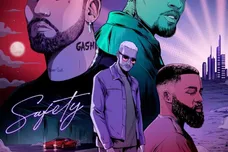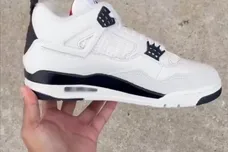When you’re DJ Khaled, you’re faced at each moment with finding more bombastic ways of outdoing yourself— more bangers, more glitz, more superstar collabs, and more bass. With his last album, Grateful, Khaled built on the hype of a nascent Snapchat career to relaunch his brand into the meme and Twitter generation. Except Internet virality has a short shelf life, and it creates peaks that are nearly impossible to ascend a second time. So on his eleventh studio album, Khaled chose to turn inward, centering his album on his son, again.
Father of Asahd is an album that taps every top-tier musician in the R&B and hip-hop worlds, along with many newcomers. Listen and you’re guaranteed to find some of your favorite artists mingling in DJ Khaled’s house party, perhaps a little unwillingly. The musical side of the DJ Khaled brand has begun to tarnish, but the man shrewdly capitalizes on hype and publicity, so alongside the album he has a released a documentary showing how this album came together over the course of a year. The documentary was released exclusively and at a screening in New York’s Apollo Theater. TIDAL followed by a live interview with Elliott Wilson.
Here are some of the major takeaways from the documentary.
DJ Khaled, his wife Nicole Tuck and their son Asahd attend Nickelodeon's 2019 Kids' Choice Awards - Jon Kopaloff/Getty Images
DJ Khaled says he’s crazy for trying (successfully) to get Beyonce on “Top Off”
It took a little persistence, and a little wine, for DJ Khaled to cajole Jay-Z into getting on his hit “Top Off.” In his interview with Elliott Wilson, Khaled admitted to taking two bottles of wine “to the head” and then playing Jay-Z the track off his hit song, which at the time only included Future’s verse. After Jay-Z sent the verse back to him, Khaled had the temerity to take the request a step further. He hit Jay-Z back, asking for “the queen” to jump on the track.
Puff Daddy believes Father of Asahd will become DJ Khaled’s landmark album
DJ Khaled counts Puff Daddy among his biggest influences, as a musician, a businessman, and a father. So when Khaled sat Puffy and Nas down to listen to the album’s “You Stay,” which flips Puff Daddy’s “Señorita” he was visibly on edge waiting for the patriarch’s blessing. After listening to the project and the accompanying music video, Puff Daddy proclaimed that Father of Asahd would be DJ Khaled’s Illmatic, “[your] Life After Death.” Oouf. Do you agree with that bold statement?
DJ Khaled has essentially become an executive producer on his own albums
Although Khaled got his start as a DJ and continues to be listed as a producer on his albums, the documentary portrayal of his artistic process never shows the man himself behind the computer. Instead, Khaled has become a celebrity curator, telling his sound engineers (whom deserve a lot of credit) and collaborators the kinds of arrangements and sounds he wants to hear on each track. There’s nothing inherently wrong with this, but it was refreshing to see Travis Scott jump into the production chair and do the work on his own contributions to the album with a verse on the song “Celebrity.”
Khaled is a loving father, but it’s still hard to see how the album connects to fatherhood
Large portions of the documentary are devoted to scenes of Khaled and his wife, Nicole Tuck, doting on their son, the album’s namesake. For all the photoshoots and time spent introducing his son to Khaled’s celebrity friends, we never get to hear Khaled’s thoughts on fatherhood, on the role his son has played in his life, the way it has changed his music. When asked, he’s prone to throw some platitudes at you and suggest that the answers are to be found in the content of his verses, but a successful articulation of the issue remains elusive.
Nipsey Hussle continues being honored in DJ Khaled’s projects
When DJ Khaled released the music video for the song “Higher,” he did so in honor of Nipsey Hussle, who is featured on the song and appeared in its music video. Profits from the single’s release will go directly to supporting Nipsey Hussle’s children. DJ Khaled devoted a moment of his documentary to describing how the song came together. Following a long conversation about minority ownership and systemic racism, Nipsey Hussle recorded his verse, which DJ Khaled said contained the exact same ideas and content that they had discussed just minutes before.
DJ Khaled’s musical ambitions have grown to an international scale
Khaled knows his biggest strength: He is just ingratiating enough, and just trustworthy enough to produce hits, that every performer will give him a shot— and more than often it works out for everyone involved. In creating the song “You Say,” DJ Khaled revealed that he deliberately sought to reach out to the Latino world and “touch people’s soul and bones,” hence his collaboration with J Balvin. Just as crucial to this album were Sizzla and Buju Banton, who literally took this project to Jamaica. “I felt like I was in Kingston, but in my studio,” Khaled said after recording Sizzla’s track. The documentary includes footage of DJ Khaled shooting his music video for the song “Holy Mountain” and mingling with locals in Jamaica.







